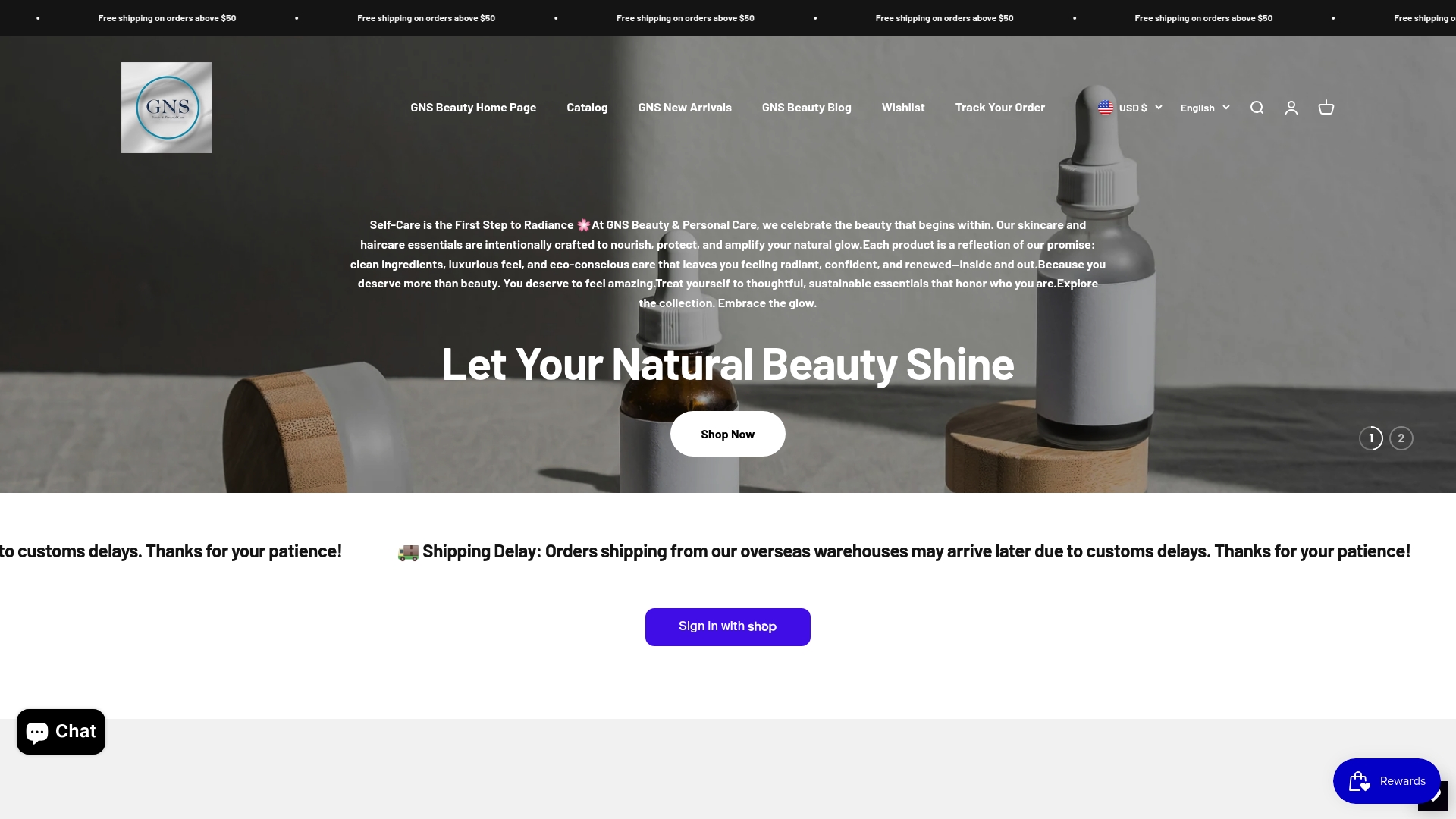Coconut oil pops up in everything from beauty blogs to pharmacy shelves for a reason. Nearly half of coconut oil is lauric acid, making up roughly 48 percent of its unique fat profile. The surprise? This isn’t just another moisturizer. Some skin types absolutely thrive on it while others could actually see more pimples or irritation. The full truth about coconut oil and your skin is not as simple as it sounds.
Table of Contents
- Understanding Coconut Oil: Composition and Benefits
- The Science Behind Coconut Oil and Skin Health
- Debunking Myths: Common Misconceptions About Coconut Oil
- Coconut Oil in Skincare: Suitability for Different Skin Types
- Evaluating the Impact of Coconut Oil on Skin: Expert Insights
Quick Summary
| Takeaway | Explanation |
|---|---|
| Coconut oil is not universal for all skin types | Individual skin reactions vary greatly; coconut oil may be a poor choice for oily or acne-prone skin. |
| Patch testing is essential before use | Always conduct a patch test to identify potential allergic reactions or sensitivities to coconut oil. |
| Coconut oil provides moisturizing benefits | Suitable for dry and sensitive skin types, coconut oil helps restore hydration and skin barrier function. |
| Understand individual skin biochemistry | Factors like genetics and existing conditions influence how skin responds to coconut oil; consult professionals for personalized advice. |
| Coconut oil cannot replace scientifically formulated moisturizers | While beneficial, coconut oil lacks comprehensive hydration properties needed for specific skin issues and should complement standard skincare. |
Understanding Coconut Oil: Composition and Benefits
Coconut oil is a complex natural substance derived from coconut meat, renowned for its unique molecular structure and potential skincare properties. Its composition makes it a fascinating ingredient that has captured the attention of researchers and skincare enthusiasts worldwide.
The Chemical Composition of Coconut Oil
At its core, coconut oil is predominantly composed of medium-chain triglycerides (MCTs), which distinguish it from other plant-based oils. According to research published in the Journal of Functional Foods, virgin coconut oil contains a remarkable profile of fatty acids that contribute to its potential therapeutic benefits:
- Lauric Acid: Approximately 48% of coconut oil’s composition
- Myristic Acid: Around 16-18% of total fatty acid content
- Caprylic Acid: Representing about 8-10% of the oil
These fatty acids play crucial roles in determining coconut oil’s interaction with human skin, influencing its potential moisturizing and protective capabilities.
Potential Skin Health Benefits
Coconut oil’s unique molecular structure enables several potential skin health advantages. Clinical studies have demonstrated its promising attributes in skin care and protection. A significant randomized, double-blind clinical trial found that virgin coconut oil can:
- Reduce transepidermal water loss
- Enhance skin hydration levels
- Potentially mitigate mild inflammatory skin conditions
The oil’s molecular composition allows it to penetrate skin layers more effectively than many other topical substances.
Its saturated fat content creates a protective barrier that can help prevent moisture loss and potentially support skin barrier function.
Researchers have observed that coconut oil’s anti-inflammatory properties might stem from its ability to suppress specific inflammatory markers. This suggests potential benefits for individuals with sensitive or reactive skin types, though individual responses can vary significantly.
While coconut oil presents intriguing potential, it’s essential to recognize that skin interactions are complex and highly individualized. What works wonderfully for one person might not yield identical results for another, underscoring the importance of personalized skincare approaches.
The Science Behind Coconut Oil and Skin Health
The relationship between coconut oil and skin health is deeply rooted in its complex biochemical interactions, revealing a sophisticated mechanism of potential therapeutic benefits that extends beyond simple moisturization.
Molecular Interactions with Skin Barrier
At the microscopic level, coconut oil demonstrates remarkable capabilities in skin barrier function. Research from the International Journal of Molecular Sciences highlights how its unique molecular structure enables profound dermatological interactions:
- Lipid Penetration: Medium-chain fatty acids can seamlessly integrate with skin’s natural lipid layers
- Hydration Mechanism: Creates a protective barrier preventing moisture loss
- Cellular Compatibility: Mimics natural skin lipid composition
These molecular characteristics allow coconut oil to interact differently from synthetic skincare ingredients, potentially offering more natural skin support.
Antimicrobial and Anti-Inflammatory Properties
Beyond basic moisturization, coconut oil exhibits scientifically intriguing antimicrobial characteristics. Its primary component, lauric acid, demonstrates potent antibacterial and antifungal properties. Researchers have observed how these properties might help manage certain skin conditions by:
- Reducing microbial proliferation
- Minimizing inflammatory responses
- Supporting natural skin healing processes
The oil’s chemical structure enables it to disrupt bacterial cell membranes, potentially providing a natural defense mechanism against skin pathogens. This mechanism suggests why traditional medicine has long utilized coconut oil for wound healing and skin protection.
Individual Variability in Skin Response
While scientific evidence suggests promising benefits, individual skin responses to coconut oil can vary dramatically. Genetic factors, existing skin conditions, and personal biochemistry significantly influence how skin interacts with this natural substance. Some individuals might experience profound hydration and healing, while others could potentially encounter comedogenic reactions.
Understanding these nuanced interactions requires acknowledging that skincare is not a one-size-fits-all approach. Coconut oil represents a complex, bioactive substance whose effectiveness depends on multiple interconnected physiological factors. Consulting dermatological professionals remains crucial for personalized skincare strategies.
Debunking Myths: Common Misconceptions About Coconut Oil
In the realm of skincare, coconut oil has become a subject of intense debate, surrounded by numerous myths and conflicting information. Understanding the scientific reality behind these claims is crucial for making informed skincare decisions.
Myth 1: Coconut Oil Works for Every Skin Type
Contrary to popular belief, coconut oil is not a universal skincare solution. Research published in clinical dermatology journals suggests that skin responses to coconut oil can vary significantly based on individual skin characteristics:
- Oily and Acne-Prone Skin: Higher risk of comedogenic reactions
- Dry and Sensitive Skin: Potentially beneficial moisturizing effects
- Combination Skin: Mixed and unpredictable responses
The misconception that coconut oil is a one-size-fits-all solution stems from oversimplified marketing narratives that ignore the complex biochemical interactions between oil and individual skin types.
Myth 2: Coconut Oil Can Completely Replace Moisturizers
Another prevalent myth suggests that coconut oil can entirely substitute traditional moisturizers. While coconut oil possesses hydrating properties, it cannot comprehensively replace scientifically formulated moisturizers. The oil’s limitations include:
- Inconsistent hydration levels across different skin types
- Limited ability to address specific skin concerns
- Potential inability to provide comprehensive nutritional support
Scientific evidence indicates that coconut oil can be a supplementary ingredient but should not be considered a complete moisturization solution. Professional skincare formulations often combine multiple ingredients to provide balanced, targeted hydration.
Myth 3: Natural Always Means Safe
The assumption that natural substances are inherently safe for all skin types is fundamentally flawed. Coconut oil, despite its natural origin, can trigger adverse reactions in certain individuals. Dermatological research emphasizes the importance of understanding individual skin sensitivities and potential allergenic responses.
Some individuals might experience inflammatory reactions, increased breakouts, or contact dermatitis when using coconut oil. The term “natural” does not guarantee universal compatibility or absence of potential skin complications.
Navigating skincare requires a nuanced approach that prioritizes individual skin characteristics over generalized recommendations. Consulting dermatological professionals and conducting patch tests remain critical steps in determining personal skincare compatibility.
The following table organizes the main myths about coconut oil in skincare alongside the scientific reality to clarify common misconceptions.
| Myth | Scientific Reality |
|---|---|
| Works for every skin type | Skin reactions vary widely; not suitable for oily or acne-prone skin |
| Can completely replace moisturizers | May provide hydration but lacks targeted ingredients found in scientific formulations |
| Natural always means safe | Can cause irritation or breakouts; patch testing and professional advice are essential |
Coconut Oil in Skincare: Suitability for Different Skin Types
Skincare is a highly personalized journey, and coconut oil’s interaction with different skin types represents a complex biochemical relationship that demands nuanced understanding. Not all skin responds identically to this natural ingredient, making individualized assessment crucial.

Oily and Acne-Prone Skin Considerations
Clinical research from dermatological studies reveals that coconut oil’s comedogenic properties make it particularly challenging for individuals with oily and acne-prone skin. Its molecular structure can potentially exacerbate existing skin conditions:
- High Lipid Content: May clog pores and trigger breakouts
- Potential Inflammatory Response: Could worsen existing acne conditions
- Increased Sebum Production: Might disrupt natural skin balance
People with oily skin should approach coconut oil with extreme caution, preferring lighter, non-comedogenic alternatives that support skin health without risking additional complications.
Dry and Sensitive Skin Interactions
For individuals with dry and sensitive skin, coconut oil presents a more promising profile. Its natural moisturizing properties can offer significant hydration benefits:
- Supports skin barrier restoration
- Provides deep, long-lasting moisture
- Contains natural anti-inflammatory compounds
Researchers have observed that coconut oil’s medium-chain fatty acids can penetrate skin layers more effectively than many synthetic moisturizers, potentially offering enhanced hydration for chronically dry skin types.
Balanced and Combination Skin Approach
Individuals with balanced or combination skin must take a strategic, measured approach to coconut oil integration. The key lies in understanding personal skin biochemistry and performing careful patch testing. Moderation and selective application become paramount.
While coconut oil offers intriguing potential, it is not a universal solution. Skin responses vary dramatically based on genetic factors, environmental conditions, and individual biochemical makeup.
To help you compare how coconut oil interacts with different skin types, the table below summarizes its potential effects and suitability for each category.
| Skin Type | Potential Benefits | Possible Drawbacks | Suitability |
|---|---|---|---|
| Oily & Acne-Prone | May provide mild hydration | High comedogenicity; can clog pores and worsen acne | Often Not Suited |
| Dry & Sensitive | Deep hydration and barrier support | Possible allergic reaction or irritation in some | Often Suited |
| Combination | Moderation may yield benefits; spot treatment | Risk of pore clogging in oily zones | Use With Caution |
| Balanced/Normal | Light moisturizer, supports skin barrier | Occasional risk of clogged pores | Conditional |
Evaluating the Impact of Coconut Oil on Skin: Expert Insights
Dermatological research continues to unravel the complex interactions between coconut oil and human skin, presenting a nuanced perspective that transcends simplistic marketing narratives. Understanding these scientific insights requires a comprehensive examination of its multifaceted impacts.

Anti-Inflammatory and Therapeutic Potential
Clinical research published in pediatric dermatology studies reveals compelling evidence about coconut oil’s therapeutic capabilities. Experts have identified several significant mechanisms of action:
- Cytokine Regulation: Suppresses inflammatory molecular signals
- Skin Barrier Enhancement: Supports natural protective mechanisms
- Microbiome Interaction: Potentially modulates skin bacterial environment
These findings suggest that coconut oil is not merely a passive moisturizing agent but an active participant in skin health maintenance. Dermatological professionals emphasize its potential as a complementary treatment for mild inflammatory skin conditions.
Molecular Mechanisms of Skin Interaction
Beyond surface-level observations, coconut oil’s impact stems from its intricate molecular structure. Researchers have documented its ability to interact with skin at cellular levels, offering insights into its functional complexity:
- Penetrates deeper skin layers more effectively than many synthetic alternatives
- Contains medium-chain fatty acids with unique biochemical properties
- Demonstrates potential for supporting natural skin regeneration processes
The scientific community continues to investigate how these molecular interactions translate into tangible skin health benefits, recognizing that individual responses can vary significantly.
Expert Recommendations and Cautionary Perspectives
Dermatological experts consistently emphasize a balanced, personalized approach to coconut oil integration. While acknowledging its potential benefits, professionals stress the importance of:
- Conducting individual patch tests
- Consulting healthcare professionals for personalized advice
- Understanding unique skin biochemistry
The consensus among specialists is that coconut oil should be viewed as a potential complementary skincare ingredient rather than a universal solution. Its effectiveness depends on individual skin characteristics, genetic factors, and overall health conditions.
Ultimately, the scientific discourse surrounding coconut oil underscores the complexity of skin biology. Continued research promises deeper understanding of its potential therapeutic applications, challenging existing perceptions and expanding our knowledge of natural skincare interventions.
Discover Skincare That Works for You—No More Guesswork
If you have ever wondered whether coconut oil is truly right for your skin, you are not alone. The article revealed how each person can react differently and why understanding your unique skin needs is crucial. For anyone struggling with products that clog pores or wondering if a “natural” option is always better, finding a tailored solution can feel overwhelming. At GNS Beauty & Personal Care, we carry a curated collection of premium, eco-conscious skincare chosen to support real results for every skin type.

Ready to build a routine you can trust? Explore our handpicked selection designed for wellness-savvy individuals seeking healthy, radiant skin. Visit GNS Beauty & Personal Care for high-quality options and transparent product details. Embrace self-care with confidence—shop today to experience what truly works for you.
Frequently Asked Questions
Is coconut oil suitable for all skin types?
Coconut oil is not a universal solution for all skin types. While it can benefit dry and sensitive skin with its moisturizing properties, it may exacerbate issues for oily and acne-prone skin due to its comedogenic nature.
Can coconut oil replace my regular moisturizer?
Coconut oil can be a supplementary ingredient for hydration but should not completely replace scientifically formulated moisturizers, which often include multiple components to address specific skin concerns effectively.
What are the potential skin benefits of using coconut oil?
Coconut oil may help reduce transepidermal water loss, enhance skin hydration, and has anti-inflammatory properties that could benefit mild inflammatory skin conditions.
Are there any risks associated with using coconut oil on the skin?
Yes, some individuals may experience adverse reactions like breakouts or skin irritation due to sensitivity or allergic reactions. It’s important to conduct a patch test before fully incorporating coconut oil into your skincare routine.








Leave a comment
All comments are moderated before being published.
This site is protected by hCaptcha and the hCaptcha Privacy Policy and Terms of Service apply.